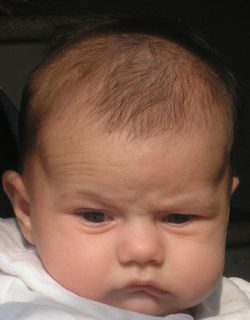Child Endangerment Charges in Illinois

In a recent Illinois appellate case, a mother challenged a conviction for child endangerment. The case arose when a Chicago cop was patrolling at 1:00 a.m. and was flagged down by someone reporting a child was left alone inside a car. There was a six-month-old baby in the baby seat in the back of the car, and he’d been crying. The rear window was open, and the car wasn’t running. The fire department was contacted, and the baby was removed from the car.
The officer ran the plates and found the car was registered to the defendant, who lived about two blocks away. When the officer went to the address where the car was registered, he found the defendant sitting on the curb with a man. The cop smelled alcohol on the mom’s breath. He asked her if she knew where her child was, and the mom responded she’d gone to a party that night and drank alcohol, but she didn’t know why her car was parked on the other street. She’d forgotten her baby was inside.
She was put in custody. At trial, the officer testified that he’d asked her if she had the name of the primary suspect. He knew the car was registered to her, and a baby was in the car, so she was never free to go. The mom’s attorney asked for leave to file a motion to suppress the mother’s statements to the police because she never received Miranda warnings. The police reports included a summary of her statements to the police, given without Miranda warnings.
The polive report said that she was placed in custody and transported and that she reeked of alcohol. The attorney argued that the police reports said she’d been put in custody after being questioned, but this conflicted with the officer’s testimony that she was not allowed to leave and was already in custody when being questioned. The trial court refused to allow the defense attorney to file the motion on the ground that the attorney should have known from reading the report before trial she hadn’t received Miranda warnings.
The officer also testified that the mother seemed to be intoxicated at a level of 10 on a scale of 1 to 10. She said she’d driven home, but this statement didn’t appear on the police report, nor did the fact that the man on the curb with her was her boyfriend, who said he’d been inside.
Another cop testified that when the defendant was found, she was arguing with her boyfriend and crying. She said her baby was in the car, and she’d gone to get her boyfriend so that he could help her find the car. The officer admitted that the reports didn’t include this statement.
A sheriff’s deputy testified that earlier in the evening, the defendant and her boyfriend had come to her home for 45-60 minutes with their child and dog. The defendant was drunk when she left around midnight, so the deputy put her in the passenger seat. The boyfriend was driving and said they’d drive home in a 5-10 minute ride.
The boyfriend, who was the baby’s father, testified he’d driven home, and it took five minutes. The mother got out first. He admitted that he’d drunk three beers at a barbecue before going to the deputy’s house. He put the baby in the car, and they parked a block from their home. They argued, and the defendant got out with the dog. The boyfriend took the groceries in and came back to the car, realizing she didn’t have the baby. He panicked and was going to call the police when the police came. He denied saying he hadn’t been out with the defendant or saying he’d been at home.
The defense attorney asked for a directed verdict on the child endangerment charge. The statute said that an inference could be drawn a child was unattended when a child under age six was left in the car for over 10 minutes. The attorney argued he didn’t contest a crime occurred but only who committed it.
The defendant was found guilty and sentenced. The judge noted she’d taken her dog but not her child. He didn’t believe what the father said. The defense asked for a new trial, which was denied.
She appealed. The appellate court explained that under 720 ILCS 5/12C-5(a), someone endangers a child when he knowingly causes or allows the health or life of a child to be endangered or the child to be put in circumstances that are endangering the child’s health or life.
The defendant argued the evidence was insufficient and was based only on her drunken confession, but the appellate court disagreed, noting that uncontested evidence showed the baby was left for more than an hour. The fact that the father wasn’t charged was irrelevant. It found that the defense attorney knew of the potential grounds for suppressing the statement before the trial had begun. For this and other reasons, the conviction was affirmed.
If you are charged with a DUI or child endangerment related to a DUI, an experienced attorney can make sure you present a strong defense. John D. Ioakimidis is an award-winning Chicago attorney and author with more than 24 years of experience. If you are charged with a drug crime in Illinois, contact me in Cook (312-229-5500), DuPage and Kane (630-504-2096), or Lake (847-696-6458) County for a free and confidential consultation to discuss your legal options.
More Blog Posts:
Can I Be Guilty of Domestic Battery If I Didn’t Hit Anyone, January 29, 2017
The Kane County Domestic Diversion Program, December 1, 2016
More Blog Posts:
Resisting a Peace Officer in Illinois


